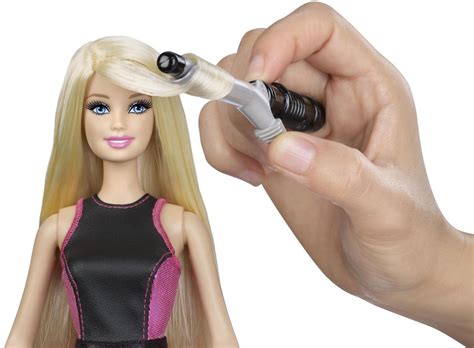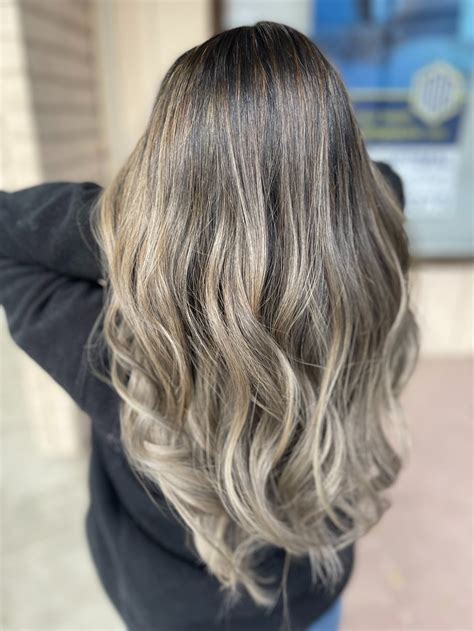Embracing the art of balayage and highlights can elevate your hair game, transforming your locks into a canvas of captivating colors. These techniques have become increasingly popular, empowering individuals to express their unique style and enhance their natural beauty.

Balayage: The Art of Sun-Kissed Perfection
Balayage, a freehand painting technique, mimics the sun’s natural lightening effects on hair, resulting in a subtle and blended transition of colors. This method involves selectively applying lightener to the surface of the hair, creating a multi-dimensional look that adds depth and movement. The result is a seamless blend of light and dark shades, resembling the effortless sun-kissed hues often admired on beach-goers.
Benefits of Balayage:
- Natural-looking: Emulates the sun’s natural lightening, creating a subtle and blended effect.
- Low maintenance: Requires less frequent touch-ups compared to traditional highlights.
- Versatile: Can be customized to suit any hair type, length, and color.
- Adds dimension and texture: Enhances the appearance of hair by adding depth and movement.
Highlights: A Classic Technique for a Bold Transformation
Highlighting involves strategically lightening sections of hair using foils or a cap, resulting in a more defined and contrasting effect. This technique allows for the creation of precise patterns and placements, enabling hair stylists to achieve a wide range of looks, from subtle enhancements to bold streaks.
Benefits of Highlights:
- Versatile: Available in various shades and intensities, customizing the look to personal preferences.
- Enhances facial features: Strategically placed highlights can accentuate facial features, such as eyes or cheekbones.
- Adds dimension and definition: Creates a more vibrant and dramatic effect compared to balayage.
- Corrects color imbalances: Can be used to fix brassiness or unwanted tones in hair.
Choosing Between Balayage and Highlights: A Matter of Personal Preference
The choice between balayage and highlights ultimately depends on the desired look and personal preferences. For a natural-looking, low-maintenance option that adds subtle depth and movement, balayage is an excellent choice. If bold, defined contrast and a dramatic transformation are the goals, highlights offer a more versatile and customizable solution.
Factors to Consider:
- Hair type and texture: Fine hair may not hold highlights well, while coarse hair can withstand more contrast.
- Lifestyle and maintenance routine: Balayage requires less frequent touch-ups, while highlights may require more maintenance.
- Face shape and skin tone: Highlights can be strategically placed to accentuate facial features.
- Budget: Both techniques can vary in cost, depending on the level of customization and maintenance required.
Balayage and Highlights: A Perfect Match for Unforgettable Hair
By combining the subtle artistry of balayage with the bold impact of highlights, hair stylists can create a masterpiece that celebrates the beauty of natural and vibrant tones. This harmonious blend allows for endless possibilities, empowering individuals to express their individuality and turn heads wherever they go.
Creating a Cohesive Look:
- Choose complementary shades: Select colors that blend well with the hair’s natural hue and create a cohesive overall look.
- Consider the placement: Strategically place highlights and balayage to enhance facial features and add depth.
- Balance the contrast: Determine the desired level of contrast between the light and dark shades to achieve a harmonious effect.
Customer Testimonials: A Validation of Transformation
“My balayage looks so natural! It’s like I’ve just stepped out of the salon after a day at the beach.” – Sarah J.
“My highlights are exactly what I wanted. They add so much dimension and make my hair look so much healthier.” – Emily K.
“I love the way my balayage and highlights complement each other. It’s the perfect combination of subtle and dramatic.” – Jessica M.
Empowering Stylists: A Journey of Artistic Expression
Balayage and highlights empower hair stylists to unleash their creativity and become true artists. These techniques allow them to explore their imagination, experiment with colors, and create unique and captivating looks.
The Importance of Education and Experience:
- Mastering techniques: Stylists must have a thorough understanding of balayage and highlighting techniques to achieve optimal results.
- Color theory knowledge: A strong foundation in color theory is essential for selecting and blending the right shades.
- Attention to detail: Precision and meticulous application are crucial for achieving flawless results.
The Future of Balayage and Highlights: Innovation and Evolution
The world of balayage and highlights continues to evolve, with emerging trends and innovative techniques pushing the boundaries of hair coloring.
Emerging Trends:
- Micro highlights: Tiny, ultra-fine highlights that add subtle dimension and movement.
- Reverse balayage: A technique that darkens the roots and lightens the ends, creating a dramatic ombre effect.
- Foilayage: A hybrid technique that combines balayage and foiling to create a blended, yet defined look.
Innovation in Techniques:
- Digital balayage: Uses a digital device to precisely apply lightener, ensuring even distribution and consistent results.
- Airtouch balayage: Utilizes a hairdryer to gently remove excess lightener, resulting in soft, airy transitions.
- Root smudging: Blends the roots with the lightened hair, creating a seamless transition and reducing maintenance.
Table 1: Comparison of Balayage and Highlights
| Feature | Balayage | Highlights |
|---|---|---|
| Technique | Freehand painting | Foils or cap |
| Effect | Subtle, blended | Defined, contrasting |
| Maintenance | Low maintenance | Requires more frequent touch-ups |
| Customization | High | Medium |
| Cost | Can be higher | Typically lower |
Table 2: Benefits of Balayage and Highlights
| Benefit | Balayage | Highlights |
|---|---|---|
| Natural-looking | Yes | No |
| Adds dimension and movement | Yes | Yes |
| Low maintenance | Yes | No |
| Versatile | Yes | Yes |
| Corrects color imbalances | No | Yes |
Table 3: Factors to Consider When Choosing Balayage or Highlights
| Factor | Balayage | Highlights |
|---|---|---|
| Hair type and texture | Fine hair may not hold highlights well | Coarse hair can withstand more contrast |
| Lifestyle and maintenance routine | Balayage requires less frequent touch-ups | Highlights may require more maintenance |
| Face shape and skin tone | Highlights can accentuate facial features | Can be used to correct color imbalances |
| Budget | Can be more expensive than highlights | Typically less expensive than balayage |
Table 4: Emerging Trends in Balayage and Highlights
| Trend | Description |
|---|---|
| Micro highlights | Tiny, ultra-fine highlights that add subtle dimension and movement |
| Reverse balayage | Darkens the roots and lightens the ends, creating a dramatic ombre effect |
| Foilayage | A hybrid technique that combines balayage and foiling to create a blended, yet defined look |
